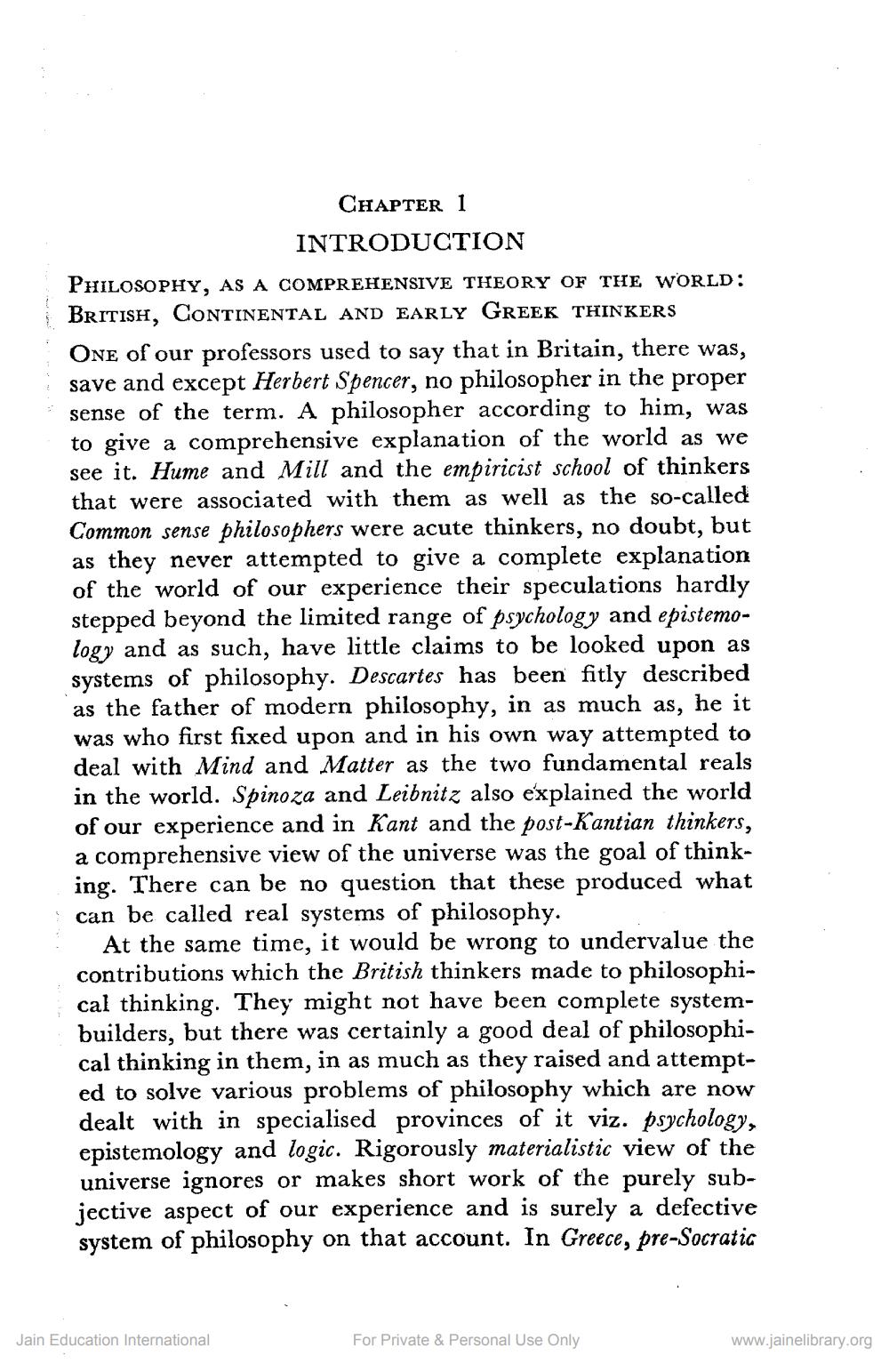________________
CHAPTER 1
INTRODUCTION PHILOSOPHY, AS A COMPREHENSIVE THEORY OF THE WORLD: BRITISH, CONTINENTAL AND EARLY GREEK THINKERS ONE of our professors used to say that in Britain, there was, save and except Herbert Spencer, no philosopher in the proper sense of the term. A philosopher according to him, was to give a comprehensive explanation of the world as we see it. Hume and Mill and the empiricist school of thinkers that were associated with them as well as the so-called Common sense philosophers were acute thinkers, no doubt, but as they never attempted to give a complete explanation of the world of our experience their speculations hardly stepped beyond the limited range of psychology and epistemology and as such, have little claims to be looked upon as systems of philosophy. Descartes has been fitly described as the father of modern philosophy, in as much as, he it was who first fixed upon and in his own way attempted to deal with Mind and Matter as the two fundamental reals in the world. Spinoza and Leibnitz also explained the world of our experience and in Kant and the post-Kantian thinkers, a comprehensive view of the universe was the goal of thinking. There can be no question that these produced what can be called real systems of philosophy.
At the same time, it would be wrong to undervalue the contributions which the British thinkers made to philosophical thinking. They might not have been complete systembuilders, but there was certainly a good deal of philosophical thinking in them, in as much as they raised and attempted to solve various problems of philosophy which are now dealt with in specialised provinces of it viz. psychology, epistemology and logic. Rigorously materialistic view of the universe ignores or makes short work of the purely subjective aspect of our experience and is surely a defective system of philosophy on that account. In Greece, pre-Socratic
Jain Education International
For Private & Personal Use Only
www.jainelibrary.org




